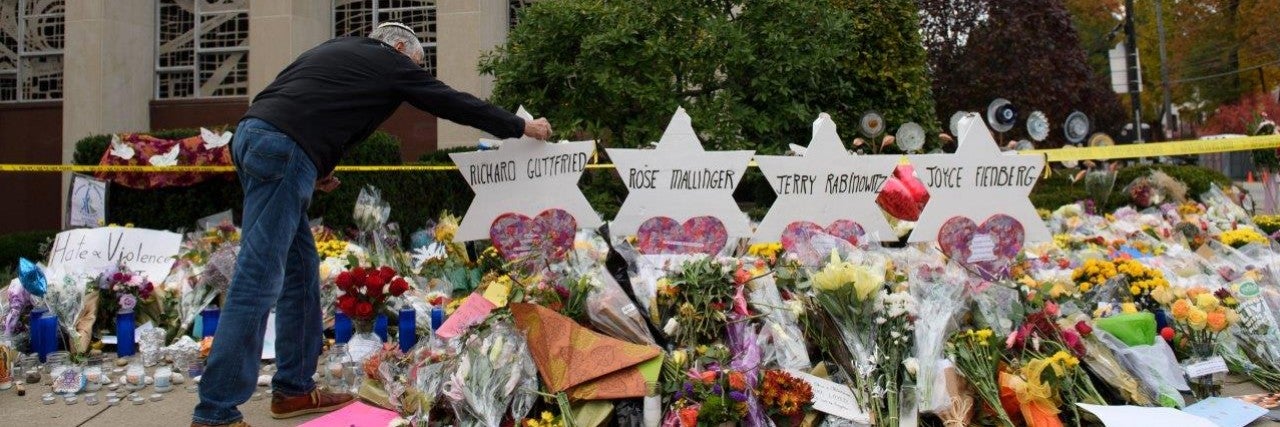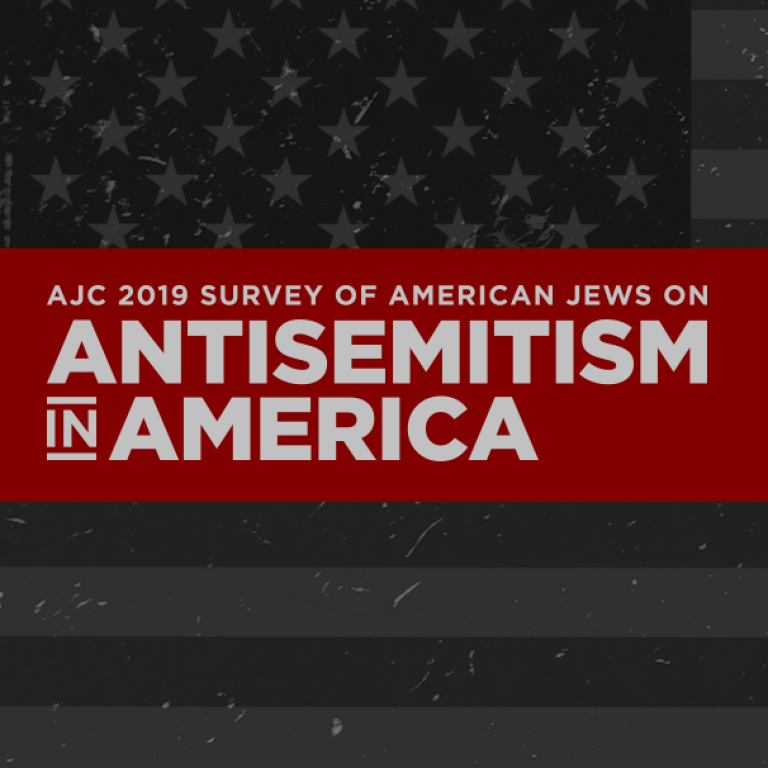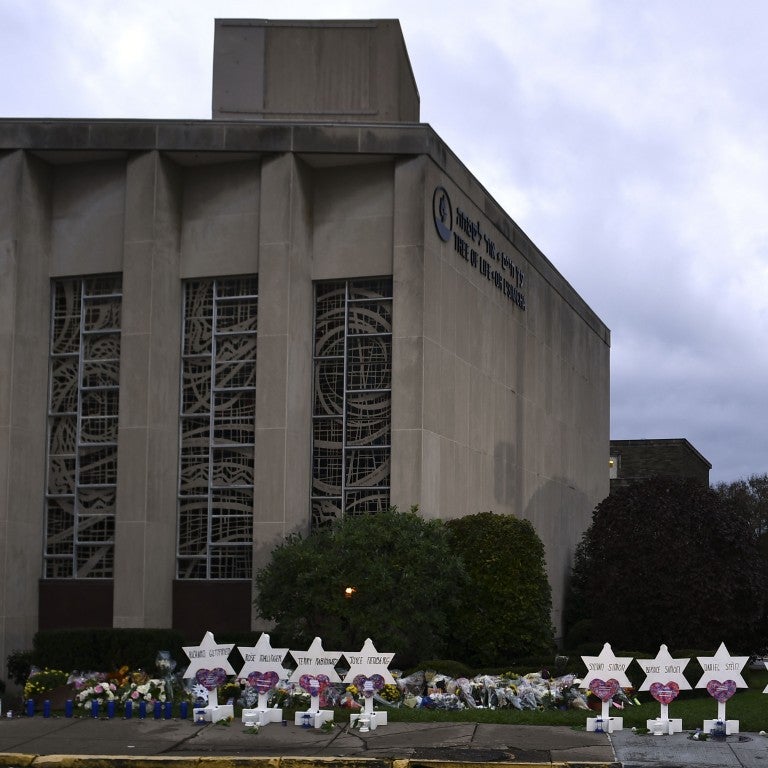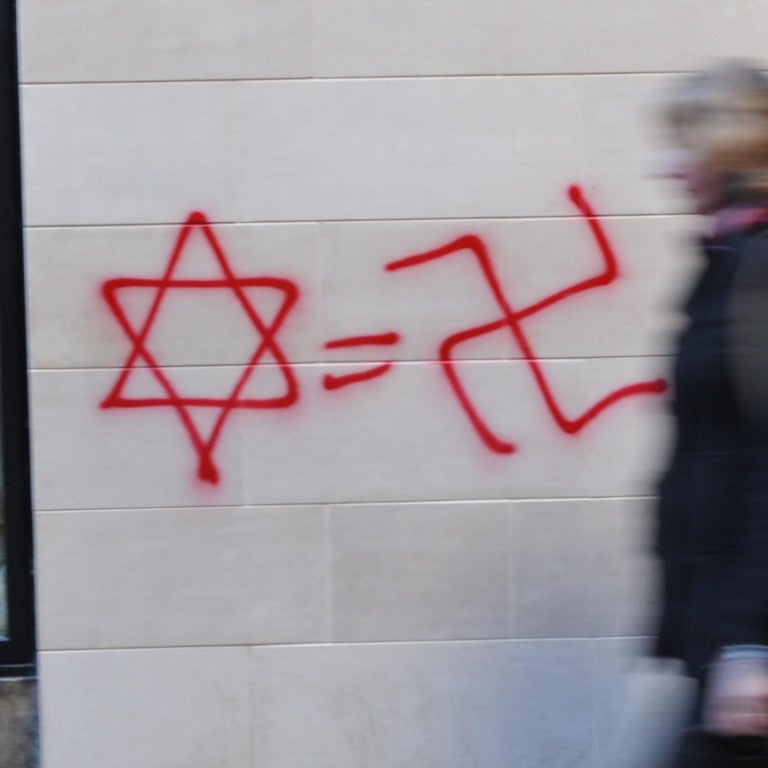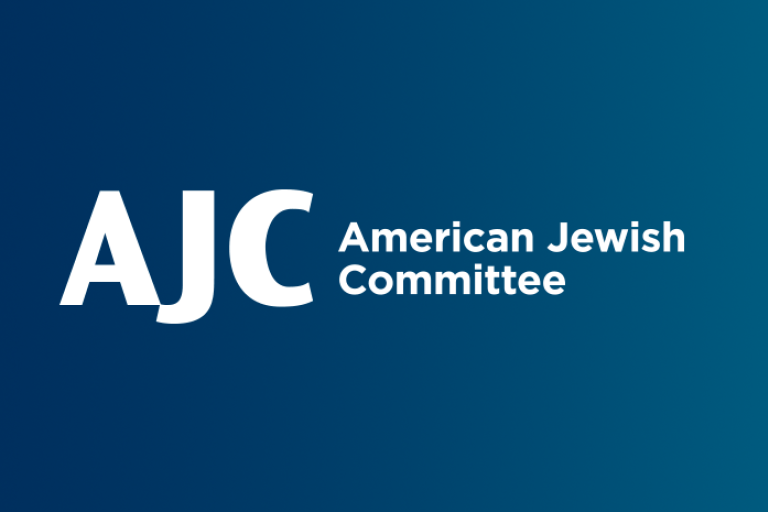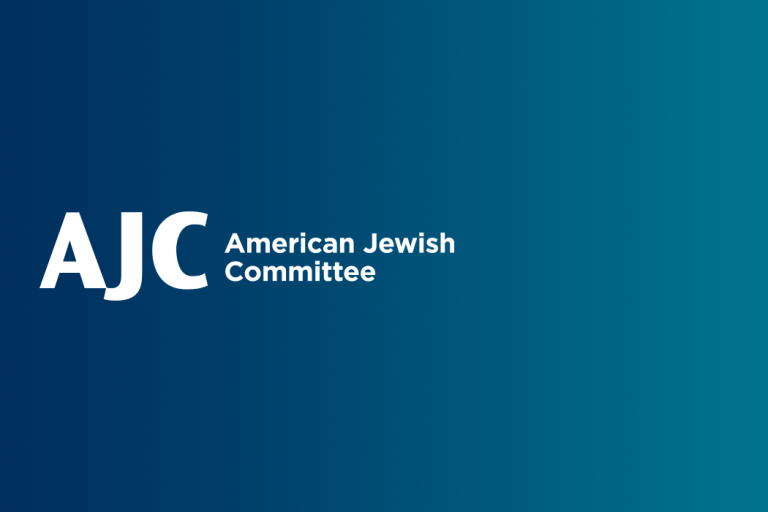October 23, 2019
In recent years, surveys have asked Jews in Europe whether they have encountered or witnessed antisemitism. Polls have measured public attitudes and opinions toward Jews around the world. But none have asked American Jews whether they feel hated and why – until now.
A year after the massacre of 11 worshipers from three congregations inside the Tree of Life building in Pittsburgh, AJC asked members of the world’s second largest Jewish population if they are concerned about antisemitism in America. The answer was a resounding yes.
Here are three key findings from the most comprehensive survey of American Jews’ attitudes about antisemitism.
1. American Jews are Deeply Concerned
Nearly nine out of ten American Jews believe the cancer of antisemitism has begun to spread in the U.S. Eight out of ten believe Jew hatred has been on the rise in the last five years. And neither age, political affiliation, nor level of religiosity makes much of a difference in who feels that way.
More than 93% of Democrats, 87% of independents, and 75% of Republicans say antisemitism infects the nation. At least 80% of Jews of all denominations – Reform, Conservative, Orthodox, or secular --point to the uptick, as do at least 86% of Jews of all ages.
The events of the past year have given American Jews ample cause for concern. The Pittsburgh synagogue shooting was not an isolated incident. In the past year alone, a shooter entered a Chabad synagogue in Poway, killing one and injuring others. At least a dozen Orthodox Jews have been violently attacked on New York City streets. Jewish institutions and Holocaust memorials have been marred by graffiti and shattered windows.
It should come as no surprise, then, that 42% of American Jews say they are less secure than a year ago, while more than half say they feel as secure as they did right before the Pittsburgh synagogue shooting. More than half said their Jewish institutions had hired security guards or had police posted outside. More than a fifth said their institutions had been targeted by antisemitic graffiti.
2. Jews Are Hiding Their Jewishness
Nearly a third of American Jews (31%) say they have tucked their Star of David pendant into their blouse, removed their kippot, and avoided publicly wearing, carrying, or displaying other things that might help people identify then as Jewish. A quarter of respondents say they avoid certain places, events, or situations out of concern for their safety or comfort as Jews at least some of the time.
Young people are most likely to have hidden their Jewishness in public, with nearly four in ten (38%) of those aged 18-29 saying they have done so. It stands to reason that victims of antisemitism are more likely than others to avoid certain situations (34%) or to publicly display their Jewish identity (41%) than those who have not.
Anticipating this reticence after the Pittsburgh synagogue shooting, AJC organized a solidarity event called #ShowUpForShabbat to encourage people of all faiths to fill the pews at synagogues as a show of unity and defiance. This year, more than 250 synagogues are hosting a second #ShowUpForShabbat to commemorate a year since the Pittsburgh synagogue shooting and remember the victims.
3. Jews Consider Anti-Zionism Antisemitic
According to the overwhelming majority of American Jews, statements that qualify as antisemitism include “The U.S. government only supports Israel because of the Jewish money” (80%) and “American Jews are more loyal to Israel than to America” (73%).
But the most egregious statement, according to respondents, is “Israel has no right to exist.” More than 84% of American Jews believe that statement is antisemitic and that anti-Zionism—the belief that Jews have no right to statehood in their national homeland—is just a different way to spell “antisemitism.”
The belief that rejecting Israel’s existence is antisemitic doesn’t change according to how Jews vote, how they worship, or how old they are: Democrats (85%), Republicans (87%), and independents (82%) agreed that denying Israel’s right to exist is antisemitic, as did those between the ages of 18-29 (78%), 30-49 (82%), and 50-64 (92%). 86% of American Jews aged 65 or older find the rejection of Israel’s right to exist to be antisemitic. When asked, 79% of those who identify as secular Jews believe opposing Israel’s statehood is antisemitic, and the numbers go up from there: 80% of those who identify as Haredi, 87% of those who identify as Modern Orthodox, 90% of those who identify as Conservative or Reform, 82% of those who identify as Reconstructionist.
Among the respondents who were most familiar with the anti-Israel Boycott, Divestment, and Sanctions (BDS) Movement, more than half said it is mostly antisemitic. Young people were the most likely to say the BDS Movement either is mostly antisemitic or has antisemitic supporters, with 88% holding that view.
In addition, more than a third of the respondents said the climate on college campuses is more hostile to pro-Israel students than it was a year ago, reflecting new efforts by the BDS Movement and other hostile actors to target study abroad programs in Israel, mobilize students to urge their universities to adopt BDS policies, and silence pro-Israel speakers on campuses.
